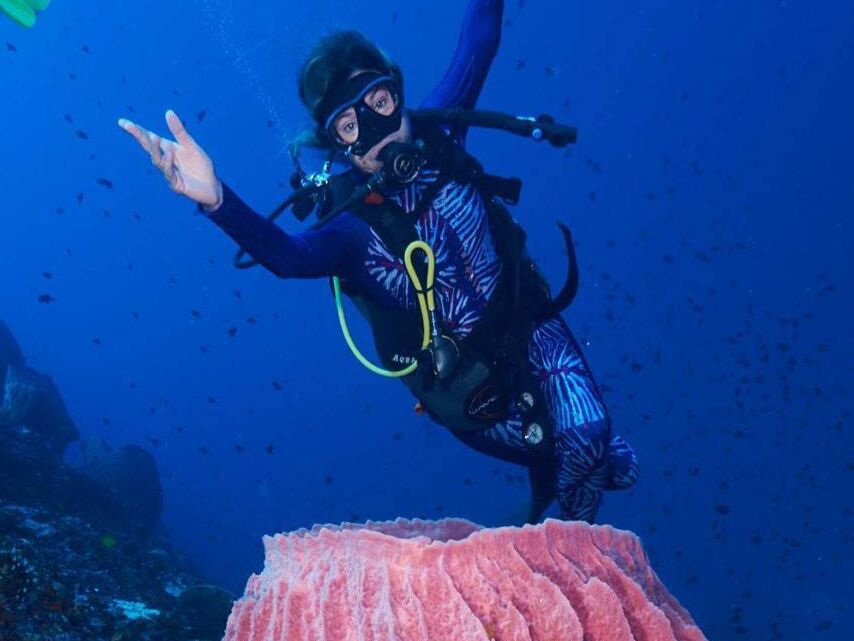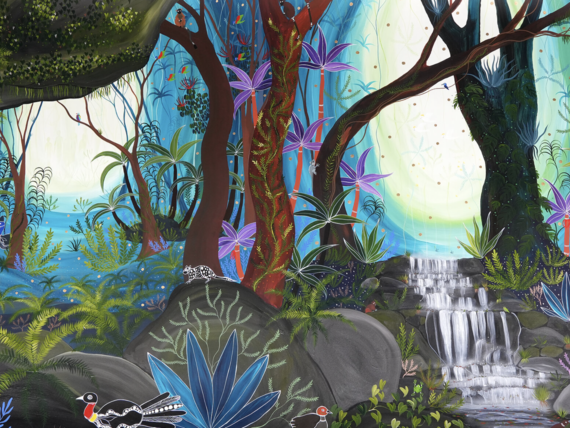Your guide to all the latest on our Reef
With so many pledges and plans about the Great Barrier Reef announced during this Federal election, Tropic Now has gathered all the latest in one convenient guide.
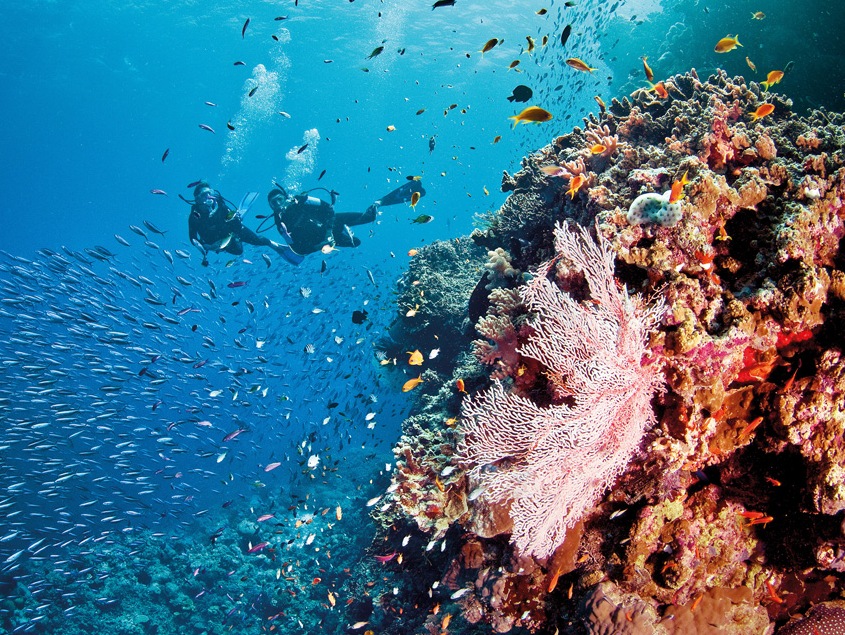
The Great Barrier Reef sure is getting lots of love and attention this Federal election campaign, and not just from politicians.
While the parties are scrambling to outbid each other with their respective plans to protect the Reef, everyone from billionaires and diving legends to advertising agencies are throwing money and messages at the issue.
All the attention on the Reef has garnered extraordinary international coverage in recent weeks, most of it focused on dire predictions over its future.
With so many announcements, predictions and reports flooding news feeds over the past fortnight, Tropic Now provides this one-stop wrap up of everything said, promised and pledged for the Great Barrier Reef.
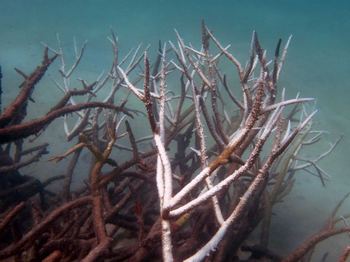
LATEST CORAL BLEACHING STUDY
Another week, seemingly another piece of research declaring a large percentage of coral on the Reef has died due to bleaching events.
The latest findings were released yesterday by the ARC Centre of Excellence for Coral Reef Studies which found bleaching has killed an average 35 per cent of coral in central and northern parts of the Great Barrier Reef.
Using extensive aerial and underwater surveys, the researchers studied 100,000 corals on 84 reefs between Townsville and Papua New Guinea.
The latest research follows study results released in March which showed 95 per cent of the northern Great Barrier Reef was severely bleached.
ARC researcher Professor Terry Hughes said: "The good news is that the reefs around Cairns and south down to Townsville have relatively light levels of mortality from bleaching. On those reefs between 5 and 20 per cent of corals have died. That's good for the tourism industry. Unfortunately it's a different story north of Cairns where 24 of the reefs we surveyed had more than 50 per cent mortality so far."
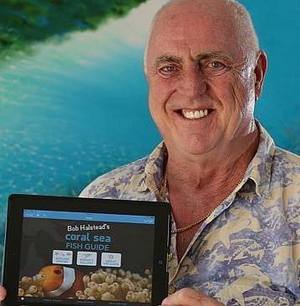
SCUBA DIVING LEGEND HITS BACK AT REEF "HYSTERIA"
For every piece of research predicting a dire future for the Reef, there is always an opposite and equal reaction.
This time it comes courtesy of Bob Halstead, a Cairns-based underwater photographer, tour guide and member of the International Scuba Diving Hall of Fame.
In a lengthy article he penned in the latest edition of Divelog Magazine, Mr Halstead wrote:
"Coral reefs are not monuments. They are extraordinarily dynamic and resilient, and the life cycle of the living 'skin' of coral is much shorter than the 1000 years often quoted. Some fast growing corals have life cycles of only 20-25 years, and these are particularly vulnerable to events such as bleaching, Crown of Thorns sea star damage and storms. Given clean water, they are are also particularly adapted to rapid recovery. Long live the Great Barrier Reef!"
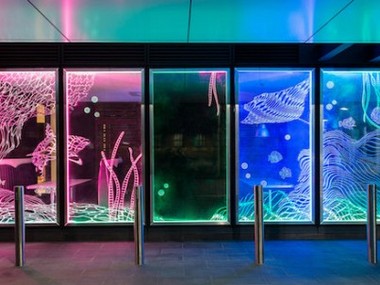
REEF 'SELFIE' CAMPAIGN
WWF Australia has teamed up with leading advertising agency Leo Burnett to launch a campaign urging Sydneysiders to take a selfie with the Reef "before it's too late".
The ad agency has created an LED-lit installation of the Great Barrier Reef across five giant window panes of its offices in central Sydney, with passers-by urged to stop and take a selfie with the Reef "before it’s gone".
If an Android smartphone is held up in front of the installation, a hidden message created with infrared light becomes visible on the installation screen with the message "The Reef’s biggest threat is invisible: Help us stop global warming. #FightForTheReef.”
Leo Burnett Sydney CEO Pete Bosilkovski said: "We are proud to be able to help WWF shine a light on the devastating impact global warming is having on the Great Barrier Reef."
LABOR'S $500 MILLION REEF AID PACKAGE
Labor leader Bill Shorten visited Cairns on Monday to add another $377 million to its existing $123 million promise made earlier in this Federal campaign.
The package includes $100 million for research by universities, CSIRO and other institutions, $300 million to reduce nitrogen and sediment run-off and around $100 million on management programs.
During his visit to Cairns, Mr Shorten said: "The reef is in peril. If we do not act, our children will rightly ask us why didn't we."
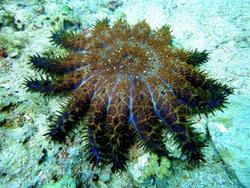
COALITION FUNDS CROWN-OF-THORNS VESSEL
Environment Minister Greg Hunt says the Turnbull Liberal team will have "considerably more to say" about its plan to protect the Reef before election day on July 2.
So for now the party and local MP Warren Entsch are busy spruiking its big Budget spend of an additional $171 million over six years for Reef 2050 Plan and Reef Trust from last month, plus today's announcement of $6 million to fund a new vessel to help tackle Crown-of-Thorns starfish.
Around 400,000 crown-of-thorns starfish have been killed as part of the program involving divers injecting the starfish with a saline solution.
Mr Entsch said: "The new control vessel will assist with removing adult starfish to protect coral cover, monitoring and surveillance and support for research through providing samples, specimens, monitoring data and berthing for researchers."
BILLIONAIRE BRANSON PLEDGES MILLIONS FOR REEF
The man with the widest smile on the Global Rich List jetted into Sydney yesterday to announce his own plan to help protect the Great Barrier Reef.
Richard Branson announced a three-year partnership with Greening Australia to raise $10 million for the first stage of a $100 million project to address soil erosion along waterways and improve water quality flowing into the Reef.
Sir Richard Branson said: "I have long been passionate about the health of the ocean, having spent many hours in and amongst its waves, particularly in Australia. Like me, Virgin Australia is passionate about doing what we can to help save one of the most complex and beautiful natural systems on earth, the Great Barrier Reef."
A CALL FOR COMMON SENSE ON REEF'S FUTURE
With more than 40 years of experience diving, working on and loving the Great Barrier Reef, tropical north tourism identity and marine biologist Wendy Morris has called for calm and common sense on the whole Reef debate.
Writing in a special column for Tropic Now, Ms Morris believes scientific research should help build understanding and appreciation for the Reef, rather than cause alarm and fear about its future.
Ms Morris writes: "Reef tourism operators are almost without exception passionate and careful custodians of our reefs. Most have marine biologists or reef interpreters to help their visitors use a different lens to see the reef. We need people from Melbourne and Mumbai, Sydney and Shanghai, Terrigal and Timbuctoo to experience the reef. When we observe we become aware, when we are aware we care, when we care we conserve."
